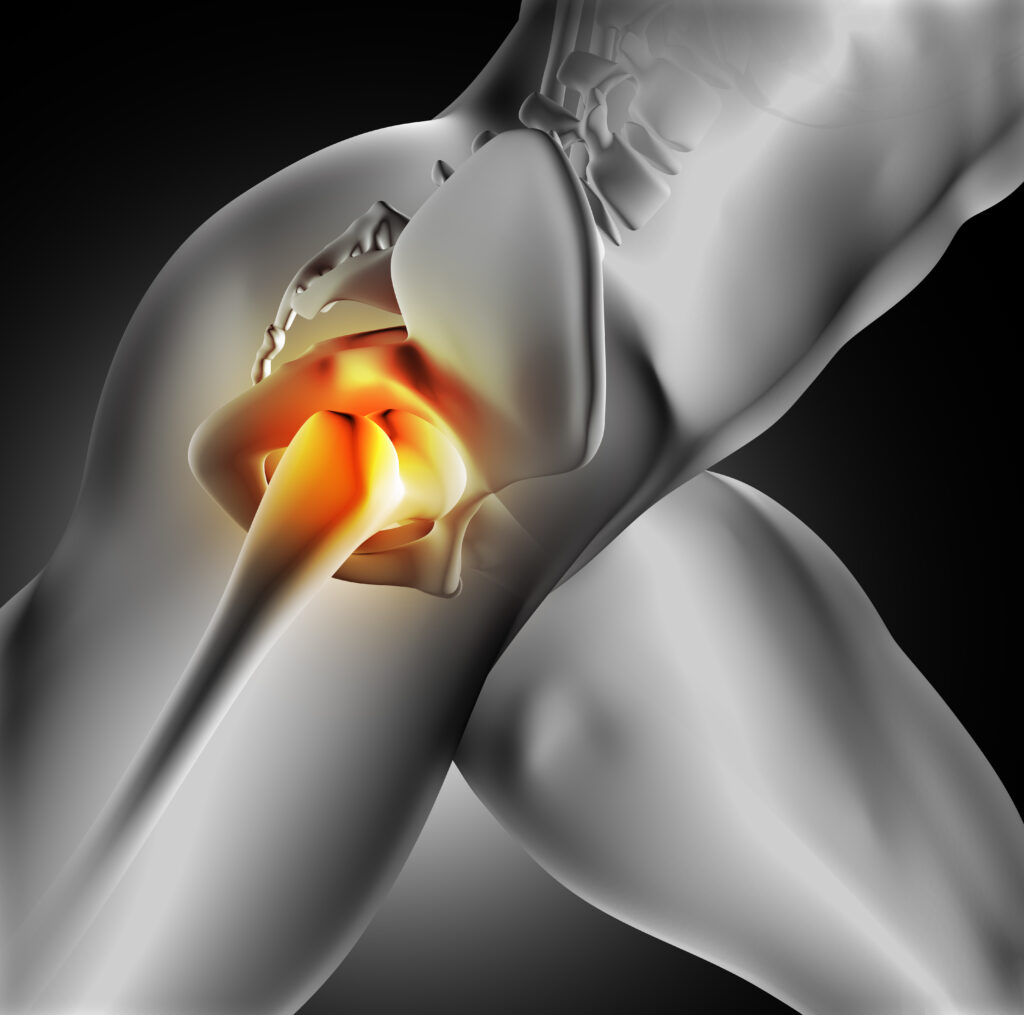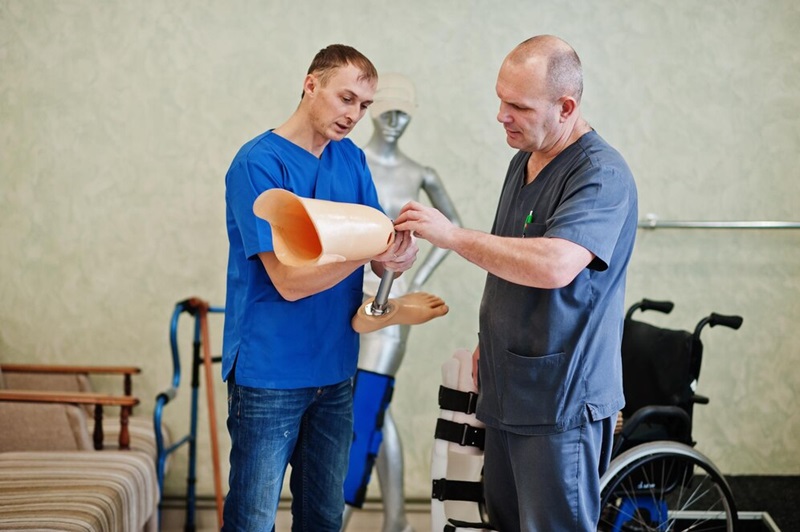Making the decision to have hip replacement surgery in Thane is a big one that has to be well thought out and prepared for. Those undergoing hip replacement surgery navigate a life-changing process that begins before the procedure and continues through recovery. This process includes everything from managing chronic pain and limited mobility to finding relief and improved quality of life.
In this article let’s analyze, we explore the stages of the hip replacement process and offer insights on what to expect at each one. Patients and their loved ones can move through the hip replacement surgery process with confidence and clarity if they are aware of the phases involved, from preoperative evaluations and surgical procedures to postoperative recovery and rehabilitation.

3D render of a medical image of close up of hip bone joint
Here’s What to Expect Before, During, and After Surgery
Hip replacement surgery in Thane is a common and successful procedure that can significantly improve your quality of life. If you’re facing this surgery, understanding what to expect can help ease anxieties and prepare you for a smooth recovery. Let’s delve into the three phases of the journey inside the orthopedic hospital in Thane: before, during, and after surgery.
Before Surgery: Preparing for a Successful Outcome
- Medical Evaluation: Your doctor will conduct a thorough assessment to determine your fitness for surgery in hip replacement surgery in Thane. This may involve blood work, imaging tests, and a discussion of your medical history.
- Medication Adjustments: Certain medications like blood thinners and anti-inflammatory drugs might need to be stopped beforehand to minimize bleeding risks during surgery.
- Lifestyle Modifications: Your doctor may recommend quitting smoking, weight management, and specific exercises to optimize your overall health and surgical outcome.
- Home Preparations: Make your home recovery-friendly. Install grab bars, remove trip hazards, and arrange for assistance with daily activities if needed.
- Mental Preparation: It’s natural to feel anxious. Talk to your doctor, family, and friends about your concerns, and seek emotional support.
During Surgery: The Procedural Steps
- Anesthesia: You’ll likely receive general anesthesia, putting you into a deep sleep, or regional anesthesia, numbing the lower body while you remain awake.
- Positioning and Sterilization: You’ll be positioned on the operating table, and the surgical area will be sterilized with an antiseptic solution.
- Implant Placement: The surgeon will make an incision in the hip, remove the damaged joint components, and implant the prosthetic hip.
- Wound Closure and Recovery: Once the implant is secured, the surgeon will close the incision with sutures or staples. You’ll then be monitored in the recovery room until you’re awake and stable.
After Surgery: Rehabilitation and Recovery
- Hospital Stay: You’ll typically stay in the hospital for a few days, undergoing physical therapy to learn how to move safely with your new hip.
- Pain Management: Pain medication will be prescribed to manage discomfort. It’s crucial to follow your doctor’s instructions regarding medications.
- Physical Therapy: Rehabilitation is a cornerstone of recovery. A physical therapist will guide you through exercises to regain strength, flexibility, and mobility in your hip.
- Home Care: Following discharge, continue physical therapy at home or in an outpatient facility. Practice using assistive devices like walkers or crutches as instructed.
- To avoid infection, keep the wound dry and clean. Your doctor will provide specific bathing instructions.
- Recovery Timeline: Recovery is gradual. While you might see significant improvement within weeks, full recovery can take several months. Be patient and consistent with your physical therapy exercises.
Conclusion
In conclusion, the journey of hip replacement surgery in Thane is a multifaceted process that encompasses various stages, each with its challenges and milestones. From the initial decision to undergo surgery to the postoperative period of rehabilitation and recovery, individuals embark on a transformative journey towards improved mobility and quality of life. By understanding what to expect before, during, and after surgery, patients and their support networks can approach the hip replacement journey with informed expectations and proactive engagement.
While challenges may arise along the way, the ultimate goal of regaining mobility, reducing pain, and restoring function serves as a guiding light through the journey. With the support of healthcare professionals, loved ones, and personalized care plans, individuals can navigate the hip replacement journey with resilience, determination, and the promise of a brighter, more mobile future ahead.
FAQs
What can I expect during the recovery period after hip replacement surgery?
After surgery, you’ll spend time in the hospital for monitoring and rehabilitation. Physical therapy will be a crucial part of your recovery to regain strength and mobility. You may also need assistive devices like walkers or canes during the initial stages of recovery.
What are the potential complications or risks associated with hip replacement surgery?
Although hip replacement surgery is generally safe, like any surgical procedure, it carries risks such as infection, blood clots, implant loosening, and nerve damage. Your surgeon will discuss these risks with you before the procedure.
How long do hip replacements typically last?
Modern hip implants are designed to be durable, and many patients experience relief from hip pain and improved mobility for 15 years or more. However, implant longevity can vary depending on factors such as age, activity level, and the type of implant used.










